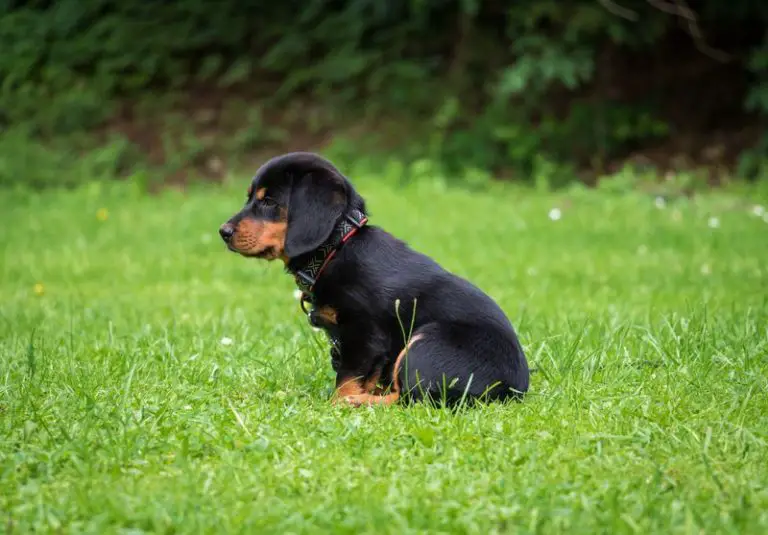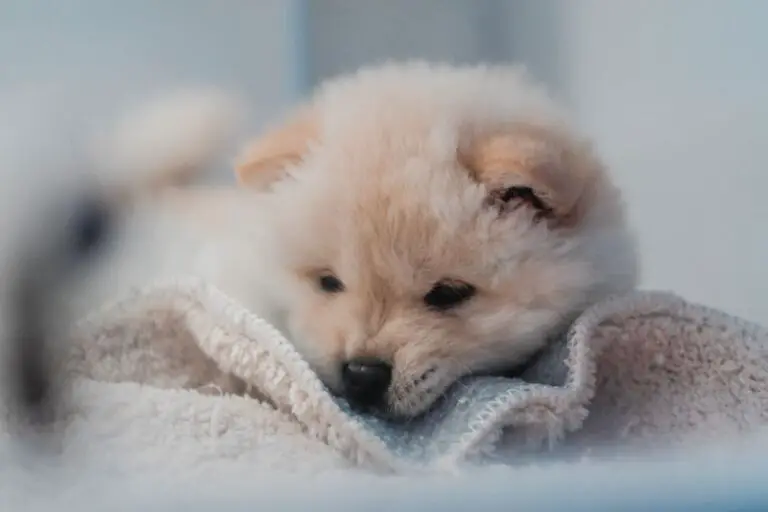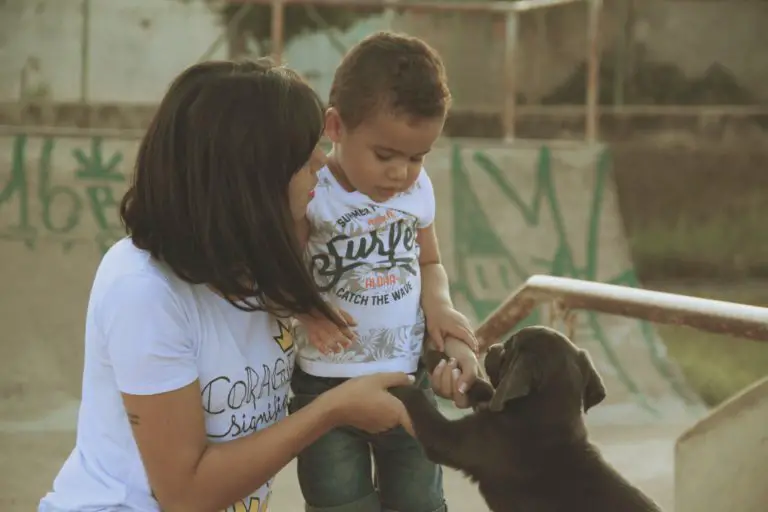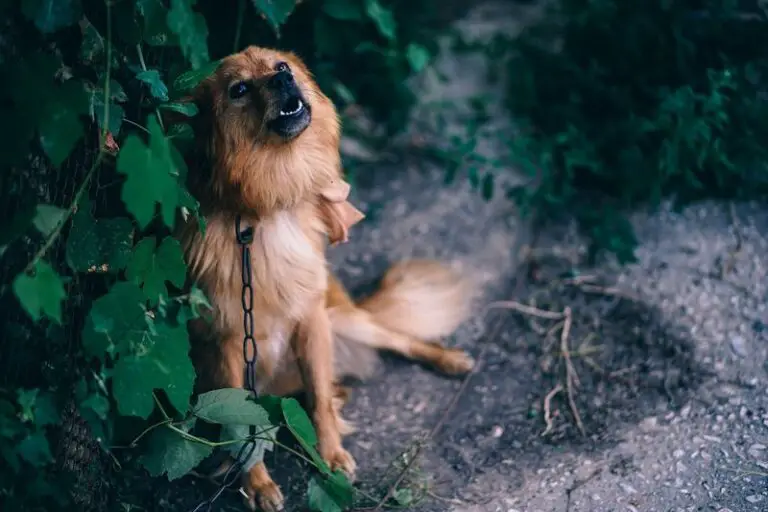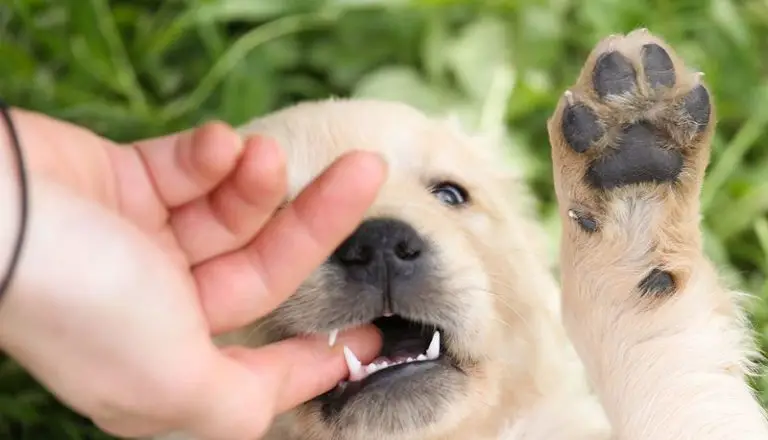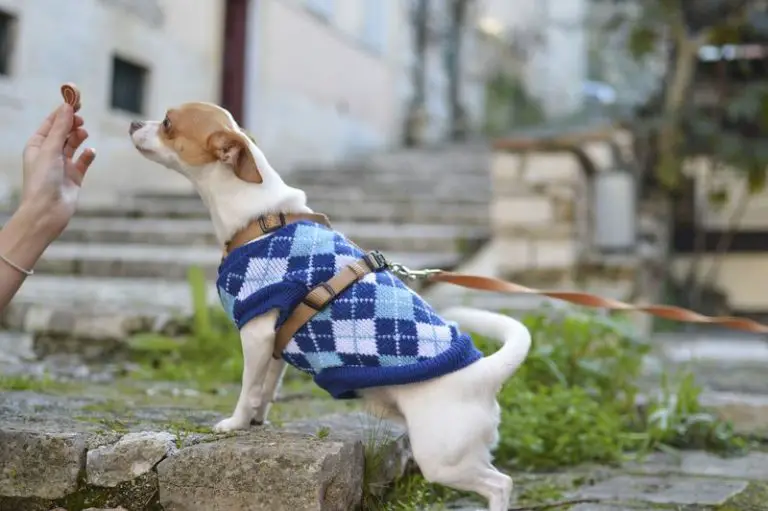4 Month Old Puppy Potty-Training Regression
Potty-training a dog initially is not an easy task, but potty-training your puppy twice, or “potty-training regression” is an especially difficult challenge for both you and your 4-month old pup to overcome.
It takes an incredible amount of effort, and a huge amount of patience having to deal with those little accidents around your home. Then, one day, you get lucky. You feel that your puppy is now fully housetrained. You can now rest easy, right? Well, not exactly.
Between the age of 4-months and 1-year old, dogs are prone to potty training regression. This, essentially, means that they are going to forget their potty training and start to backslide to their instinctual ways.
This means that the issues you thought you had dealt with are now back with a vengeance, and now you need to housetrain your dog all over again. Thankfully, the next time should be a lot simpler.
What Causes Puppy Potty-Training Regression?
There are several reasons as to why a puppy may experience puppy potty training regression. If your dog seems to be falling back into old habits, then it is important that you get to the bottom of why this is the case.
They Were Not Properly Potty-Trained To Begin With
In many cases, the dog may not have been fully potty trained. If the dog is acting perfectly fine for a couple of days and then they seem to be making messes everywhere, this doesn’t mean that they have regressed.
This means that you need to carry out a bit more training. The only time you can really say they have regressed is if there seem to be weeks between accidents.
The correct way to properly potty-train a dog will not only save you time by training your dog right the first time, but it will also avoid even the slightest hints of regression later on in life.
You took too long to let them outside
Again, this is not regression. This is a normal bodily function.
Puppies have smaller bladders than adult dogs. This means that they need to be let out more frequently, every two to four hours, at the minimum.
If your dog has had an accident, then look at when you last let them out. If it has been more than a few hours, then it is more likely that they just couldn’t hold it in.
In the future, take them out a bit more frequently and the housetraining issues will start to clear up.
Separation anxiety
4-month-old puppies are prone to separation anxiety. One of the symptoms may be urinating or defecating indoors.
Ideally, a puppy should never be left alone. At most, it should be for an hour or two. If you have no choice but to leave your dog alone for too long, then make sure that you ask a friend or family member to check in on them.
If it is going to be a regular occurrence, then it may be better to hire a dog walker. That way, you can be sure that your dog will be able to ‘do their business outdoors.
Too much time in a crate
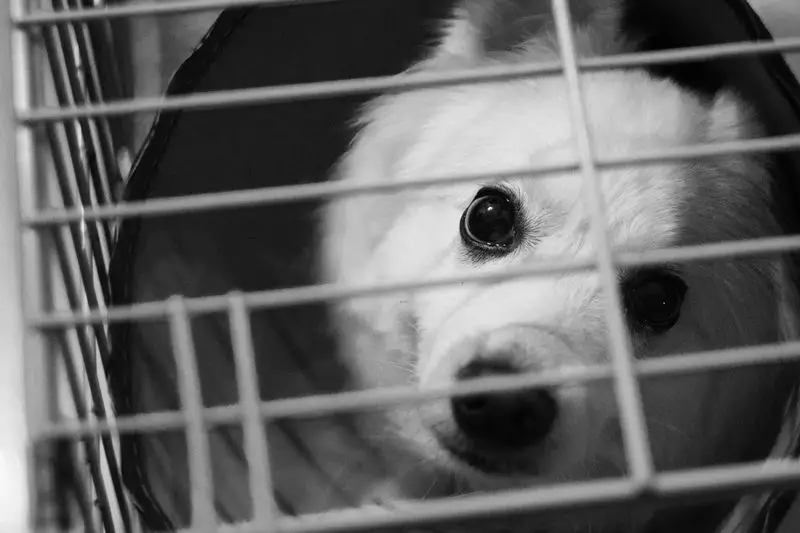
The purpose of a crate is to train your dog. It isn’t designed to have a dog locked up for hours and hours on end.
If your dog is kept in a crate for long periods, then they are more likely to suffer from training regression.
It is worth noting that once a dog pees in its crate, it can be incredibly difficult to break the habit. So, if your first sign of potty-training regression is that your dog urinated in the crate, then you may want to put crate training on hold for a short while.
Change in Circumstances
This is probably the main reason why puppies experience potty-training regression.
If there is a change in the dog’s day-to-day schedule, then they may regress. It doesn’t even have to be a big change.
Changing their mealtimes may cause regression. Have somebody visit a bit more often than normal may cause a regression.
Some people have even reported that something as simple as changing the position of the dog’s bed can cause some regression.
If you notice that your dog is experiencing training regression, then you may want to think about changes that have happened around your household recently.
Your dog may get used to them, but you will have to do a spot of training to bring them up to the standards that they were up to before.
Medical Issues
This is going to be incredibly rare for puppies, but if you can’t establish a cause for the potty-training regression, then there may be medical issues at play.
It is always going to be worth taking your puppy to a vet so that they can have their bladder and bowels checked. They could be suffering from an infection.
Obviously, once the medical issues have been cleared up, it is likely that they will start to remember their training.
Your Dog’s Brain Chemistry Changed
We know this sounds scary, but it is perfectly normal.
The main reason why puppies are more likely to regress between the ages of 4-months and 1-year is that this is when their brain chemistry starts to change. They are on the brink of adulthood.
You will probably notice that their behavior changes in other ways too e.g. more barking, or maybe a touch of aggressiveness.
All you can really do in this situation is to train them again. If they picked it up before, then they will pick it up again.
How Can You Prevent Puppy Potty-Training Regression?
To be honest, there is not a whole lot that you can really do to reduce the risk of puppy potty-training regression. Even if you work incredibly hard to train your dog well, there is still a strong chance that it could appear.
We do, however, have a couple of tips that we believe may help to reduce the risk slightly.
Many people claim that the earlier you train the dog, the less chance there is of potty-training regression. This means that you should try to train your dog from around eight weeks old. Try not to do it any earlier than this as the training won’t ‘stick’.
If you leave it too late, then your dog will already have a routine that they are used to. Even if you train them, they may have a desire to slip back into their old routine. The one that they are a lot more comfortable with.
You may also want to avoid going too hard on the training. If you push your dog too hard, then the information is unlikely to stick in their minds.
You should only be going as fast as your dog can cope. Potty-training a dog is a long and laborious process.
You can’t speed it up.
The best you can do is to stick to a schedule and hope for the best. Your dog will get there eventually. Being housetrained slower is far better than having to train the dog twice, right?
Another useful method to prevent potty-training regression is to develop a schedule both you and your pup need to abide by.
Potty Training Schedule for 4-Month-Old Puppy
Creating a potty-training schedule for your puppy that best fits your schedule and is easy for your dog to get the gist of will be most effective. Making accommodations on days that you have work, school, or another engagement should be taken into consideration before coming up with your own schedule.
For best results, keep the length of time between potty breaks between 3-4 hours. Below is a potty-training schedule that I have developed when my puppy was just 4 months old to help me be consistent and know exactly when I needed to take my pup outside.
Feel free to create one of your own that suits your schedule.
| Sunday | Monday | Tuesday | Wednesday | Thursday | Friday | Saturday |
| 6am | 9am | 8:30am | 9am | 8:30am | 9am | 6am |
| 10am | 1pm | 11:30am | 1pm | 11:30am | 1pm | 10am |
| 2pm | 5pm | 3:30pm | 5pm | 3:30pm | 5pm | 2pm |
| 6pm | 9pm | 7pm | 9pm | 7pm | 9pm | 6pm |
| 10pm | 11:30pm | 11pm | 11:30pm | 11pm | 11:30pm | 10pm |
How Do You Deal With 4-Month-Old Puppy Potty-Training Regression?
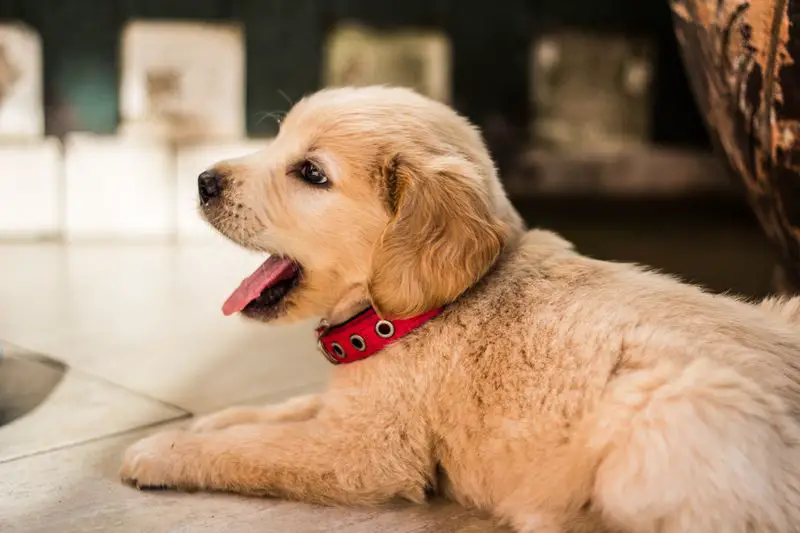
Once you have established the reasons why your puppy may be regressing, it is now time to deal with that regression. What you will need to do will be dependent on how far they have regressed.
Lots of people may have to go back to the absolute basics of potty training a dog.
This means that you may need to start with puppy pads (link to Amazon), just to teach your dog that it is not fine to ‘do their business anywhere in the home other than on the puppy pad.
If your dog uses the puppy pad correctly, then you should be giving them heaps of praise. If they are not using it properly i.e. making a mess in your home, then calmly direct them towards the pad.
They will pick up on it eventually.
Every few hours, you should be guiding your dog outside. For a four-month-old dog, this should be every 3-4 hours.
While outside, you will want to wait until the dog has urinated or passed a stool. Once they have done so, praise them and head back inside immediately. You will need to get them into the routine, and you must not break that routine.
They should be outside on a fixed schedule, otherwise, they may end up regressing again. This part of the process is probably going to be the longest. If they are still making a mess inside the home, then you may need to reduce the amount of time between them going outside, then gradually work up from that.
Finally; you will want to teach your dog how to catch your attention to let you know they need to go outside.
There is no real ‘right way’ to accomplish this. All you need to do is choose a signal. You will then want to ensure that the dog performs that signal before you head outside.
After a few weeks, they will start to link that signal to be able to head outside and do their business.
Remember; go slow and steady here. This process can take months, but it will be worth it in the end. A dog is unlikely to regress for a second time, at least at a young age.
Conclusion
Sadly, puppy potty training regression is all too common.
Thankfully, it is a problem that can be fixed. It will be a slow process, but you can get your puppy housetrained again. The training is probably going to stick a little bit better the second time you go through it too.




